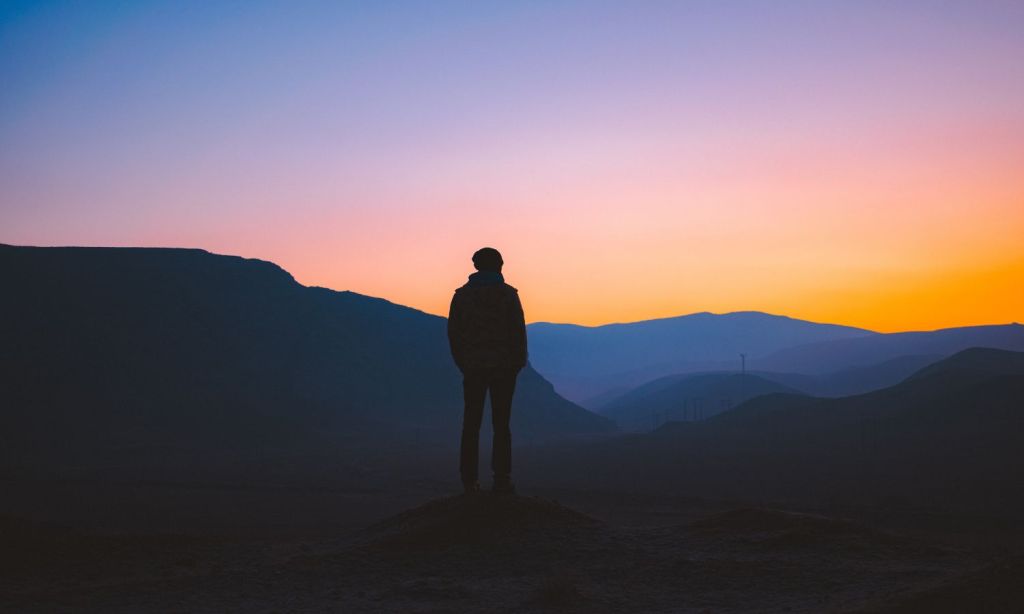In 2019, The New York Times reported that silent retreats were one of the fastest growing trends in global wellness travel. And since then, they’ve shown no sign of slowing down in Australia, with existing retreats adding silent weekend or week-long offerings, new dedicated silent retreats opening and even a hotel chain launching a series of silent activities, including a silent group gathering and walk in nature.
“There are many things that happen to the mind on a silent retreat,” says Himanshu Gour, founder of Soul Journey Retreats on the NSW Central Coast and soon-to-open property in the Blue Mountains.
Gour says the initial phase of a silent retreat tends to include some resistance as the mind isn’t used to having such less stimuli — no phone, no talking and no TV. But, with the right guide and practices in the program, he says most people have access to more presence, a deeper sense of peace and stillness and a general calming of the nervous system and body.
“We’ve really seen it work wonders,” Gour says. “We’ve had guests come in with deep anxiety and after doing one or two retreats with us, they’ve spoken about how much of a positive impact it’s made on their body and mind — and deeply lessened the anxious feelings.”
Soul Journey Retreats offers two-night silent retreats, designed to be an introduction to silence, stillness and deep mindfulness, and three-night silent retreats, which can help you pinpoint emotions and peel off layers. Gour himself has lived in ashrams and monasteries, as well as regularly attended Vipassana retreats since he was 17.
Traditional Vipassana meditations are taught through a 10-day residential course with a qualified teacher. Courses are run on a donation basis so are free to attend. Vipassana centres are across Australia, with three in NSW.
“Vipassana is a way of self-transformation through self-observation,” reads the official Australian Vipassana site. “It focuses on the deep interconnection between mind and body, which can be experienced directly by disciplined attention to the physical sensations that form from the life of the body, and that continuously interconnect and condition the life of the mind.”
The Vipassana course can be broken down into three steps. The first step, it says, is for the period of the course to abstain from killing, stealing, sexual activity, speaking falsely and intoxicants. The next is to develop mastery over the mind by learning to focus on the breath. And the final step, learnt on the last full day, is to learn the meditation of loving kindness towards all.
Aside from being a shorter timeframe than Vipassana retreats, Soul Journey Retreats’ silent retreats also weave in yoga, journaling time and a sharing session on the final morning. All retreats are led by experienced facilitators and guides, with ample opportunity for guests to have one-on-one time with them for personalised instructions.
Hotel brand Mandarin Oriental has also tapped into the trend, with The Spas at Mandarin Oriental hosting an annual Silent Night for nine years now. On the night, which in 2023 will be held on December 13, talking and music will cease at 5pm at spas worldwide.
The aim is to encourage time for individual reflection, awareness and disconnection from all technology. Each spa will also offer mindfulness-based experiences on the night, in addition to their regular wellness treatments.
“Our minds and bodies did not evolve for the fast-paced, digitally connected, urban lifestyle that most people live today,” says Jeremy McCarthy, Group Director of Spa and Wellness for Mandarin Oriental Hotel Group. “We see the need to counteract the effects of our modern, tech-centric urban lifestyle with thoughtful rituals designed to keep us balanced and build our inner strength.”
Happy Buddha Retreats also in the Blue Mountains offers silent retreats. As does KMC Australia, located in Victoria’s Dandenong Ranges. You can also book one-off silent retreats like Noble Silence Retreat, set in the Byron Hinterland from December 29, 2023 to January 1, 2024. Attendees can choose to camp, share a room or book a private room.
People’s motivations for booking a silent retreat vary greatly, says Gour. He’s seen some people book his retreats because they’re exhausted from work or kids. Others, he says, are wanting a getaway and a refresher for their minds. And some have had some traumatic experience happen that they are wanting space to process and deal with.
“Regardless of the state they come in — what is incredible to see and feel is how the space changes by the end of the retreat,” says Gour.
“Everyone is more peaceful, blissful and they slow down significantly. It’s always funny to see that when we start, people are so anxious about not having their phones. By the time the retreat is finished, people don’t want to leave, nor do they want their phone back.”
Related: Forest Bathing: The Dreamy Travel Trend That Doesn’t Even Require Water
Related: DIY Coffee Table Books Featuring Your Own Travel Pics Are Trending
Read more stories from The Latch and subscribe to our email newsletter.

